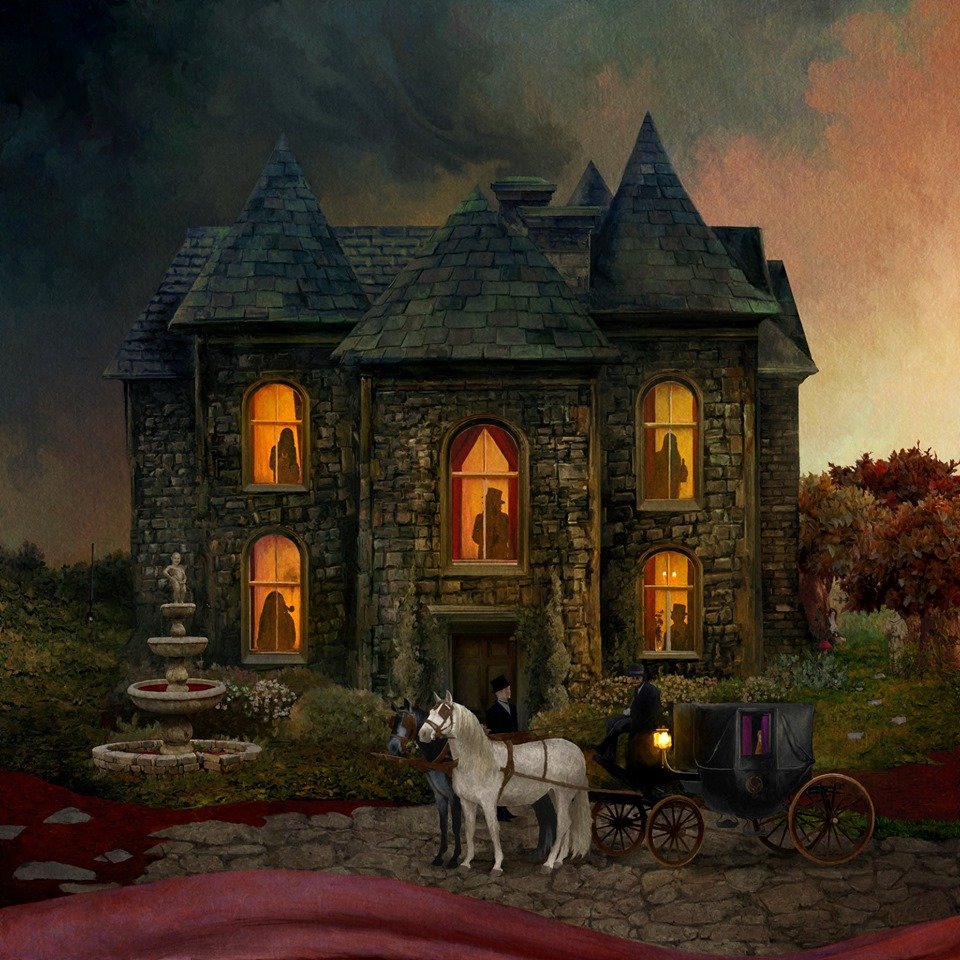
Opeth, In cauda venenum
Posted on: October 29, 2019 at 11:30 am
I’ve been very quiet in the past few months, severely lacking inspiration and patience, but if there’s anything that can get me out of my hole, it must be Opeth. After a brilliant performance at Artmania, I was more than ready for their new record and lo and behold, In cauda venenum is here to grace my ears.
Garden of earthly delights serves as the album’s instrumental intro and instead of going for the bombastic epic soundtracky approach that most bands seem to love these days, they opted for something more minimalistic and with a rather eerie uneasy vibe.
And with that we enter abruptly into Dignity, which is the most Opeth thing ever, or at the very least, the most nuOpeth thing. Intriguing, ethereal, quickly alternating between soft and powerful, carried by Mikael’s intense clean vocals and an instrumental that’s either sorrowful or dissonant, Dignity has everything we have come to expect from this band, but I feel like it lacks the punch. It sounds distant and a bit impassioned, and even if Mikael says he couldn’t stop writing for this piece and enjoyed writing very much, I just don’t hear it here.
Heart in hand is similar in sound, but I find a lot more conviction in it and in turn, that makes me a lot more interested. I particularly appreciated their experimenting with synths and distortion and their trademark sad guitar.
I adore mellow Opeth, but with this I realise how good they are when they add a touch of heaviness and darkness to their music, like in Next of kin. Again, delightful guitar, it’s beautiful how much it can transmit on its own, without any other instrument. I also love the uneasiness and weirdness of the atmosphere and the dissonant harmonies. The entire album is rather bleak (it is titled “the worst is yet to come”, after all, which is the rough signification of In cauda venenum), but this track might be the bleakest of all. There is a lot going on musically, but the vibe is desolate and the lyrics strike the it home even more.
Lovelorn crime is sad and longing and once more Mikael’s vocals manage to touch my heart and make it twitch, there is so much intensity and pain in his higher stronger tunes. And in a song where the instrumental is more subdued and conventional than what we’re used with from Opeth, the impact of his interpretation is even greater.
Charlatan is heavy, dissonant, it sounds discontinued, but you can feel it’s a choice and it works. A hectic whirlwind of instruments culminating with the punctuated “cities, violated graves” part that is unsatisfyingly short, especially since it’s followed by the children interviews about God. It’s an interesting theme, but I have never been one to appreciate spoken word in music and it does trail for quite some time, so I have come to skip it.
Universal truth is rather depressing thematically, about the uselessness and and bleakness of life. Musically though it’s quite interesting, melodical and jumping quickly, yet coherently from mood to mood and rhythm to rhythm. Along with Next of kin, it’s one of my favourite tracks of this release, because of the lovely blend between heartfelt, melodious, creative and surprising sonorically. The only minus I can find (here and all throughout In cauda venenum) is that there is too much Pink Floyd in it. Pink Floyd is an amazing band and a landmark of prog, but there should never be anything else in Opeth but Opeth. They are perfectly capable of carrying a song and an album strictly with their individual unmistakable sound and I would have it no other way.
I’m thrilled with the characteristic jazzy syncopated low keyboards that accompany the staccato vocals in The Garroter almost as much as I’m thrilled with how they flow into the long-noted smooth parts. The music is perfect for laying out the story and you can immediately tell it’s about a murder, even without listening to the lyrics or the cries near the end. It’s a disturbing and at the same time fascinating tune that shows the experimental side of Opeth as they play with flamenco-style guitars and jazz bass.
Continuum starts off in an atypically upbeat fashion before descending into the now expected pessimistic tone of the record. It’s not the most memorable piece of work, it sounds like a truck that wants to accelerate and has its hand-break on, I have the constant feel that the melody is trying to reach for something more and that something never comes. It becomes slightly frustrating in this sense, but the sorrowful musical ending is beautiful and touching.
All things will pass gives us more of the spooky sound and come to think of it, the isolated burning house on the cover captures perfectly the haunting sinister air of a large portion of In cauda venenum. And it was about time to divert from the mellowness and add some power to their tracks! Intense, engaging, gut wrenching and with the ability to make me curious about what comes next, this is where you can truly hear the genius of Opeth. It’s a great ending for the album that makes me forget about everything that wasn’t entirely satisfying.
Obviously to my ears Opeth can’t truly do wrong and even their more mediocre releases are excellent compared to most music out there. But if I’m being perfectly honest, In cauda venenum hasn’t quite captured me like their previous ones have done. I’ve been a huge fan of the change in sound (not that I like it more than the old Opeth, but I am probably one of the few that appreciates Pale communion and Blackwater park equally), but this album hasn’t quite convinced me.
Taken individually, all the tracks (with maybe the exception of Continuum) are great, but as a whole I sense that it lacks something. I feel like with the band becoming more certain in their new musical choices, some of the wonder and experimentation of a work like Heritage has been lost. There are also times when the slow calm tone starts becoming grating and I long for more heaviness and/or intensity or some other change of pace. It’s still a wonderful release and I enjoy listening to it, but I think they can do more, and have done more in the past. Although I wouldn’t be surprised if I started adoring it just as much as Pale communion after a few more spins, Opeth does tend to have that effect on me.





Be the first to comment on "Opeth, In cauda venenum" !